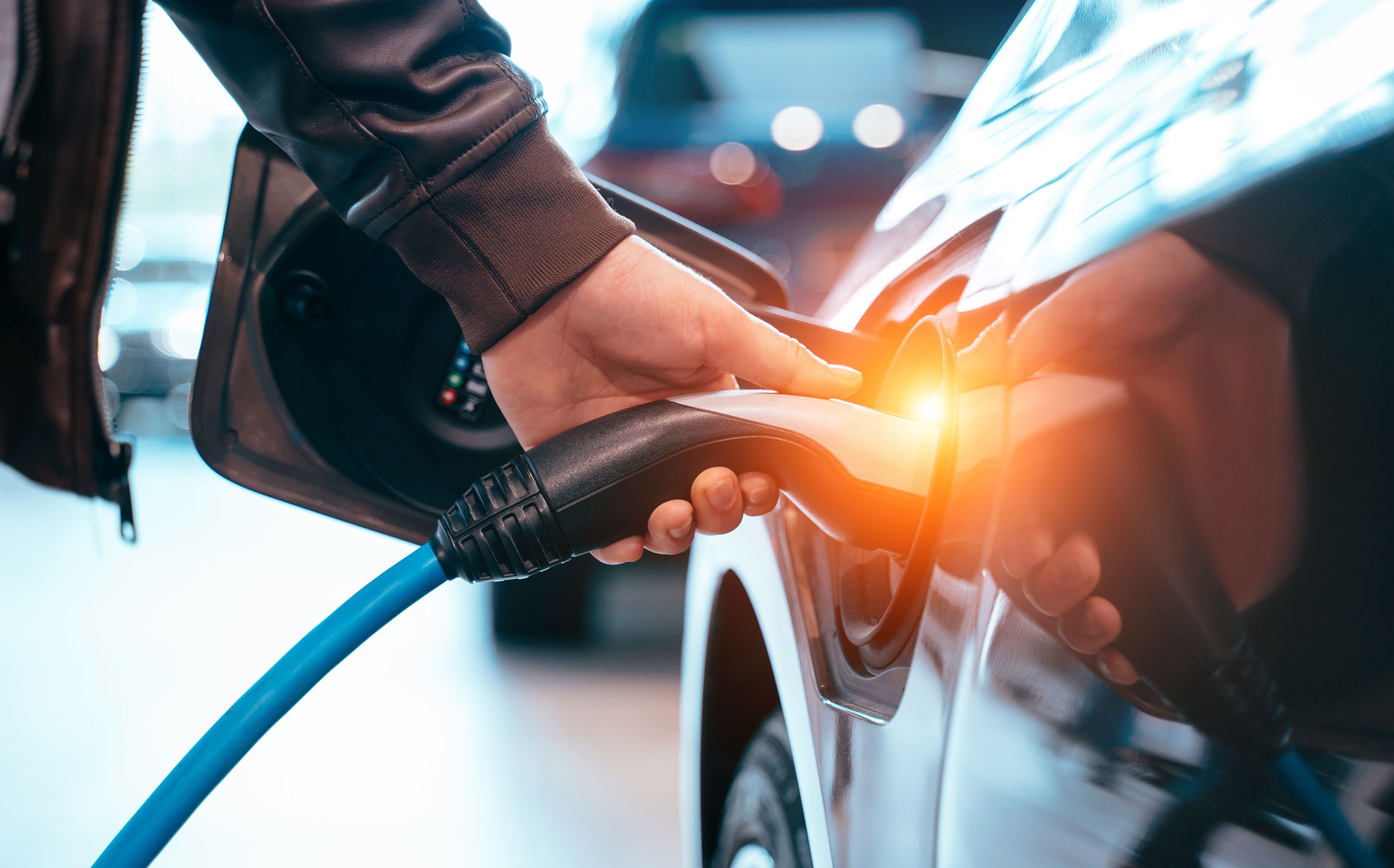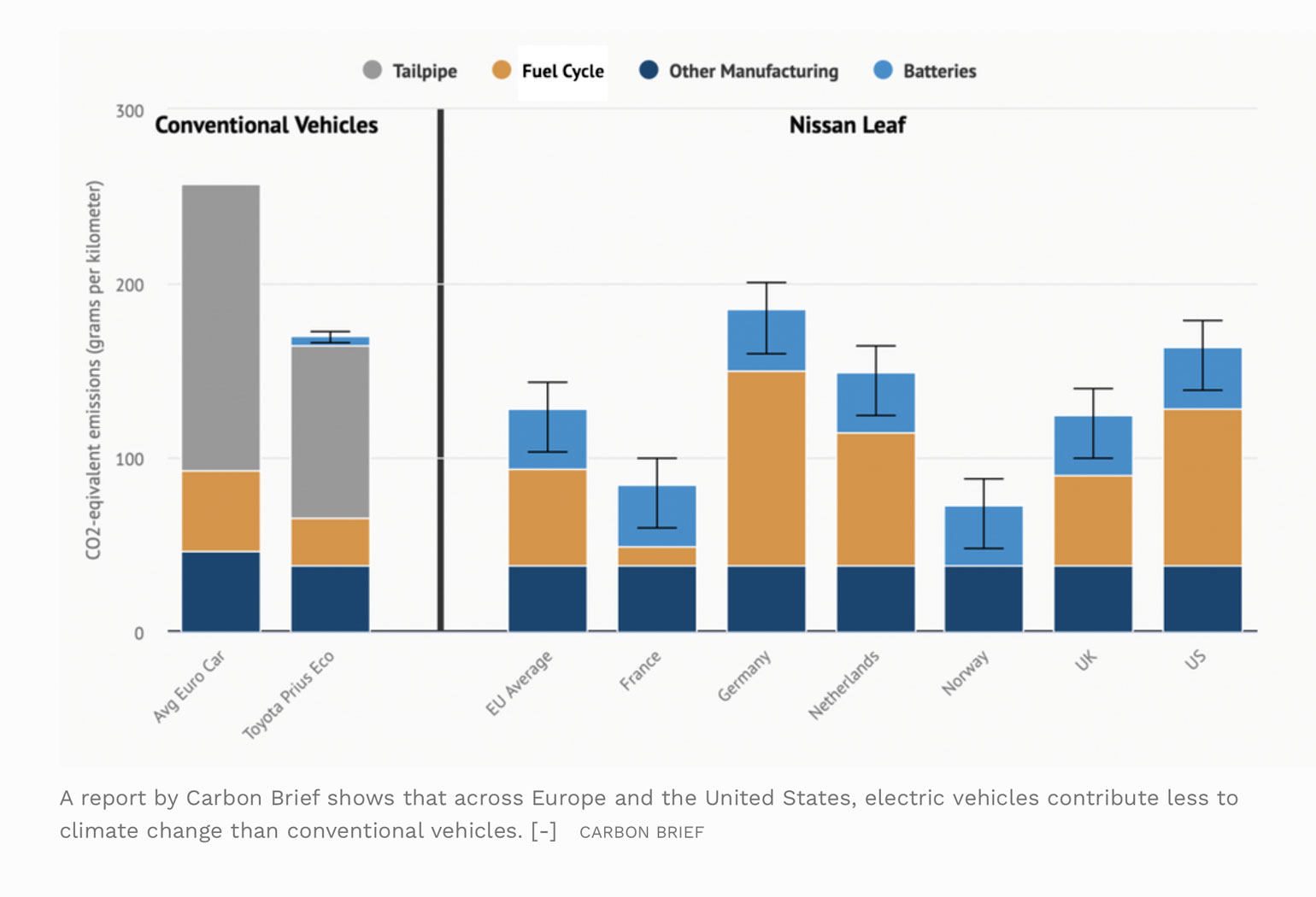
April 12th, 2021
The Innovation Needed to Speed the EV’s Impact on Climate Change
I’m digging my electric car. But people ask me, “Is it really better for the environment?” and “Is it hard to find charge stations?” The short answers are: “Yes, but” and “No, but,” respectively. Here’s why EVs are better, how one change will enhance their positive environmental impact, and how to address all the “buts.”
Four Factors Impacting the Environment
This simple scorecard, covering the four primary factors impacting car emissions, compares EVs to gas cars:
- Driving Emissions—most EVs have no tailpipe emissions, so a big checkmark √ goes to EVs on this factor.
- Manufacturing—producing big batteries causes more emissions, so √ goes to gas cars here.
- Energy Production—it depends on whether your power comes from coal, nuclear, or renewable, but coal fired plants cause more emissions than gas refineries (usually), so we’ll give a qualified √ to gas cars here (*but, see below).
- End of Life—battery recycling and disposal is complicated, so √ to gas cars again.
Looks like 3 to 1 for gas cars, BUT study after study has shown that factor #1, tailpipe emissions from driving, is soooo large that it creates more impact than the other three factors combined. So, even with potential negatives in manufacturing, end of life, and energy production, EVs still cause much lower emissions and much smaller environmental impact than gas cars over the life of the vehicle. Also, not only do EVs produce less emissions, but they’re also more efficient, so they use less energy overall and cost less to operate, regardless from where the energy comes. 1
* If you live in Germany your EV is saving the planet slower than in some other countries, but it’s still better. In the Forbes article 2 and chart below, the average gas car (far left) produces so much tail pipe emission (represented in gray) that its overall emissions are significantly higher than the Nissan Leaf—even in Germany!

Another “but.” If you buy a new car frequently (every year or two), then factors 2 and 4 weigh more heavily, making gas cars more attractive environmentally. But that’s temporary because as more people buy EVs, the industry will innovate and improve those factors, so EVs will eventually win there too (and that’s a hint at the single innovation needed for EVs).
Charging Stations
My car, a Nissan Leaf-Plus, has a 225 mile range. Occasionally I drive 220 miles to visit my daughter. I plug the route into the car’s navigation system and it suggests when I’ll need a charge and guides me to the charge stations along the way…easy peasy. Presently there are about 50 stations along this route (if I include all stations within towns I drive through). These “quick charge” stations take credit cards, and require about 30 minutes for half a “tank” (going from say 25% to 75% charge), so I plug in and walk to lunch nearby. Now for the “buts”.
But if you don’t have a navigation system in your EV you’ll need a phone app to locate charge stations for a trip. And sometimes these unmanned stations are out of order when you arrive….that’s really a pain.
And most of my EV driving is around my own city. For that I have a charger at home. I only need to recharge every week or two. I run the battery down to about a 20% charge, plug in at night, and the next morning it’s fully charged. My wife drives a gas car, so for a multi-day road trip we take her car since there are so many more gas stations today than charge stations—but that’s changing too.
So what’s the big change that EVs need? More EV drivers. The more people who use EVs, the more ubiquitous the charge stations will become, and the more car companies will invest in sustainable battery manufacturing and recycling.
It’s true that the very best way to reduce emissions is by reducing the number of cars of all types through increased reliance on public transport, ride sharing, bicycles, etc. But where that’s not possible—EVs are the next best thing. Try one. You’ll like it.